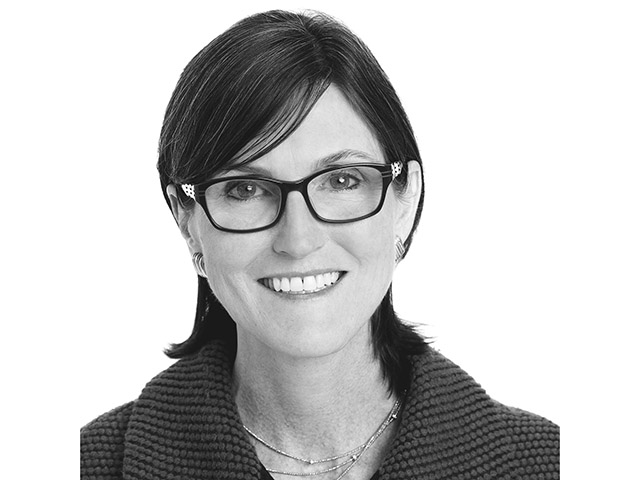Electronic payments and Innovation: A deeper look with Cathie Wood
By Ryan Noik 20 June 2019 | Categories: interviews
Last year I was amazed by how seamlessly mobile payments worked in Shanghai, China. It seemed like every vendor, from restaurants to street sellers, were geared to accepting and processing payment without requiring you to whip out your wallet and swipe your card.
And cash? It was referred to with a smile and a chuckle by one highly experienced man in finance that I spoke to as “something my grandfather uses.” So why didn’t WeChat - which boasts one billion monthly users - work as ubiquitously in South Africa? After all, we have a young population, enviable mobile penetration and ongoing concerns about crime. Surely a mobile messaging app that doubles as an electronic wallet/payment platform should be a natural fit?
The trust imperative
It was a question I posed to Catherine (Cathie) Wood, the founder of Ark Invest, at the recent SingularityU conference during an interview. Her answer was illuminating, not just for WeChat, but with regards to how people view governments and electronic payments in general.
Wood attributes a lot of the reason to WeChat failing to achieve lift off locally to China itself, and a lack of trust in that country, particularly in its approach to personal privacy. “I do think that a lot of what works in China is due to the government’s influence. Because of the way it uses AI, it wanted to encourage the dissemination of digital wallets so that it could track what its population is doing. In China, the population doesn’t have and don’t expect privacy, whereas in the Western world and Africa, we do,” she elaborated. In short, some tech solutions that emerge from China may well end up being isolated within the Chinese market exclusively.
That doesn’t mean though that global electronic wallets are out of the question. Indeed, from Apple Pay, Samsung Pay, Google Pay, to smaller players, like Zapper, the case for conveniently paying for goods and services using one’s mobile device, Galaxy Watch or Apple Watch, is still viable and attractive.
However, any player in the space is going to have to work hard to win the trust of its users, and make their lives easier as a primary reason for existing.
Make it easy
Wood highlighted Square as a particular player to watch, as it is gaining momentum in the US, and doing some interesting things to address the unbanked. “For example, Square has introduced a debit card, which people can use from whatever cash has built up in their digital wallet. And, as it garners more data from a growing user base, it is looking to introduce payroll services,” she continued.
Indeed, across Africa, finding people who are industrious, have their own small business but are unbanked due to bank fees being too expensive, or bank branches unavailable in their region, is not uncommon. The crux of the matter is that it is not just governments that people don’t trust, but banks as well.
The reason for this is the same – neither governments nor banks are perceived as being good to their citizens and users respectively – but rather are viewed as making life more difficult. And that is where the likes of Square can fill the gap, by making it easier for the unbanked, or general users to transact, to acquire working capital loans at far lower interest rates than the banks they are aiming to replace.
“I think this is just a digital disruptive model that illustrates that the established banks are in trouble,” she noted. It’s a point that another speaker, Amin Toufani, unpacked in depth. The bottom line is that to the most innovative will go the victories.
Innovation squared
The next part of our discussion was about innovation, and here is where there is reason to hope. Wood noted that it is Elon Musk’s Tesla that is most firmly on Ark Investment’s radar.
“Our largest position is Tesla and is most controversial stock I have ever owned. Traditional analysts are linear thinkers, they don’t understand exponential growth but Elon Musk - one of your own - does,” she elaborated.
Wood had a heartening encouragement for South Africa, noting that she was convinced we would see more innovators, and exponential thinkers, cut from the same cloth emerging from this country.
As an example, Wood enthused that she had met four 18 year old South Africans who are running a start-up called Budgee. "This is aimed at helping millennials, budget, save and essentially manage their wealth, who have such excitement and energy about them. I believe that when you let young people run with an idea and get out of the way, and enable them to get guidance from people who understand technology and business, they can do great things,” she added.
More people doing ‘great things’ whether in mobile payments, blockchain or in other emerging technologies, appears to be a very realistic potential to look forward to. More importantly, it may well be innovation that will end up saving South Africa from its current economic predicament.
Most Read Articles

Have Your Say
What new tech or developments are you most anticipating this year?



